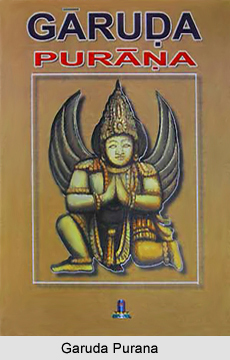 Ten day funeral ceremonies are performed by the son of the deceased. The son of the deceased calmly offers rice-balls to the father. They should refrain from tears. They should not cry when sorrow is useless. If there is no son the wife, should perform them. If there is no wife then the brother should perform them. The ten-day` ceremony, for the man who has no son is performed by the sons or grandsons of his younger or his elder brother.
Ten day funeral ceremonies are performed by the son of the deceased. The son of the deceased calmly offers rice-balls to the father. They should refrain from tears. They should not cry when sorrow is useless. If there is no son the wife, should perform them. If there is no wife then the brother should perform them. The ten-day` ceremony, for the man who has no son is performed by the sons or grandsons of his younger or his elder brother.
The rites must not be neglected due to any reason it should be at least performed by the family priest. A man or a woman who would perform the rites for a friend obtains the fruit of tens of millions of sacrifices. The ten-day` ceremony for the father has to be performed by the son. There may be many sons only one shall perform the ten-day` ceremony, the rice-ball offerings, and the other sixteen Sraddhas.
The son who would perform should be devoted by eating one meal, sleeping on the ground and devoted to Brahman. The son obtains fruit from the performance of the rite for the father and mother. Having gone to a well or a tank at a sacred bathing-place between nine and twelve noon, he should bathe without chanting mantras. He should be purified, should sit facing southward at the root of a tree, he should make an altar that is cleansed with cow-dung. On it he should place darbha and kusa grasses and should worship it with water. Then having spread Kusa grass in front of it, as a seat for the rice-ball, the son should make the offering. Crow-food, milk and water, and handful of castor-oil in a pot are offered.
From the first day onwards, one should pronounce the name of the departed woman or man according to the sapinda rite. On the first day a rice-ball is given as prescribed. On the ninth day all the authorised kinsmen should besmear themselves with oil, wishing the departed to reach heaven. Having bathed in the open, taking with them panic grass and parched grain, and having the women go in front, they should proceed to the place where the body is kept. On the tenth day a ball of flesh should be given. On the tenth day he and other relatives should shave. The son who performs the ceremony should have a complete shave. One who is performing these rites should feed a twice-born with seasoned foods during the ten days. He needs to meditate on Lord and pray for the release of the departed. Every day after the rite of Sraddha is over prayerfully the incantation needs to be repeated. After bathing and giving food to the cow he may eat.



















